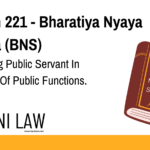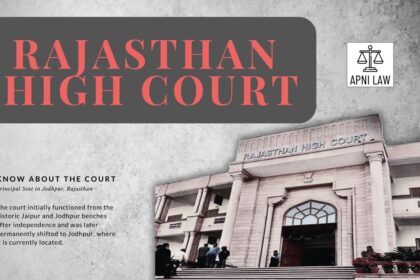Code: Section 212 BNS
Whoever, being legally bound to furnish information on any subject to any
public servant, as such, furnishes, as true, information on the subject which he knows or has
reason to believe to be false,––
(a) shall be punished with simple imprisonment for a term which may extend to
six months, or with fine which may extend to five thousand rupees, or with both;
(b) where the information which he is legally bound to give respects the
commission of an offence, or is required for the purpose of preventing the commission
of an offence, or in order to the apprehension of an offender, with imprisonment of
either description for a term which may extend to two years, or with fine, or with both.
Illustrations.
(a) A, a landholder, knowing of the commission of a murder within the limits of
his estate, wilfully misinforms the Magistrate of the district that the death has occurred
by accident in consequence of the bite of a snake. A is guilty of the offence defined in
this section.
(b) A, a village watchman, knowing that a considerable body of strangers has
passed through his village in order to commit a dacoity in the house of Z, a wealthy
merchant residing in a neighbouring place, and being legally bound to give early and
punctual information of the above fact to the officer of the nearest police station,
wilfully misinforms the police officer that a body of suspicious characters passed
through the village with a view to commit dacoity in a certain distant place in a different
direction. Here A is guilty of the offence defined in this section.
Explanation.—In section 211 and in this section the word “offence” include any act
committed at any place out of India, which, if committed in India, would be punishable
under any of the following sections, namely, 103, 105, 307, sub-sections (2), (3) and (4) of
section 309, sub-sections (2), (3), (4) and (5) of section 310, 311, 312, clauses (f) and (g) of
section 326, sub-sections (4), (6), (7) and (8) of section 331, clauses (a) and (b) of
section 332 and the word “offender” includes any person who is alleged to have been
guilty of any such act.
Explanation of Section 212 BNS
Section 212 of the Bharatiya Nyaya Sanhita (BNS) deals with false information provided to public servants. This section is crucial in maintaining honest communication between individuals and public authorities, ensuring that legal proceedings and law enforcement are not misled by fraudulent or incorrect information.
Key Provisions of Section 212 BNS:
- False Information to Public Servants (§212(a))
- If a person knowingly provides false information to a public servant, they can be punished with six months’ imprisonment or a ₹10,000 fine, or both.
- False Information About a Crime (§212(b))
- If the false information relates to a crime, its prevention, or the apprehension of an offender, the punishment is harsher—up to one year’s imprisonment or a ₹20,000 fine, or both.
Illustrations of Section 212 BNS
Example 1: False Identity Submission
A person submits false documents to obtain a government ID. This act falls under Section 212(a) BNS, leading to a possible six-month imprisonment or ₹10,000 fine.
Example 2: Fake Crime Report
A man falsely accuses his neighbor of theft to settle a personal dispute. Since this involves misleading the police about a crime, he can be charged under Section 212(b) BNS, with punishment of up to one year’s imprisonment or a ₹20,000 fine.
Example 3: Misleading Authorities About an Offender
A witness provides false details about a fugitive to mislead the police. This constitutes a serious offense under Section 212(b) BNS and can lead to one year in jail or a ₹20,000 fine.
Common Questions and Answers on Section 212 BNS
1. Who is legally bound to furnish information under Section 212 BNS?
Any individual who is legally required to provide information to a public servant, including witnesses, business owners, and citizens, is covered under Section 212 BNS.
2. What if the false information was given unintentionally?
If the false information was provided unknowingly, the person may not be penalized under this section. The law specifically punishes intentional misinformation.
3. What is the difference between Section 211 and Section 212 BNS?
- Section 211 BNS deals with omission of required information.
- Section 212 BNS penalizes the furnishing of false information.
4. Can a person be arrested immediately under this section?
Depending on the severity of the false information, the police may arrest the person. However, minor cases might only require a fine.
5. How can someone defend themselves if accused under Section 212 BNS?
A person can defend themselves by proving:
- The information was not knowingly false.
- There was a genuine mistake or misunderstanding.
- They acted in good faith.
Conclusion
Section 212 of the Bharatiya Nyaya Sanhita (BNS) aims to prevent misinformation that can mislead public authorities and compromise law enforcement. Anyone who deliberately provides false information can face serious legal consequences.
For expert legal insights, visit ApniLaw today! 🚀








